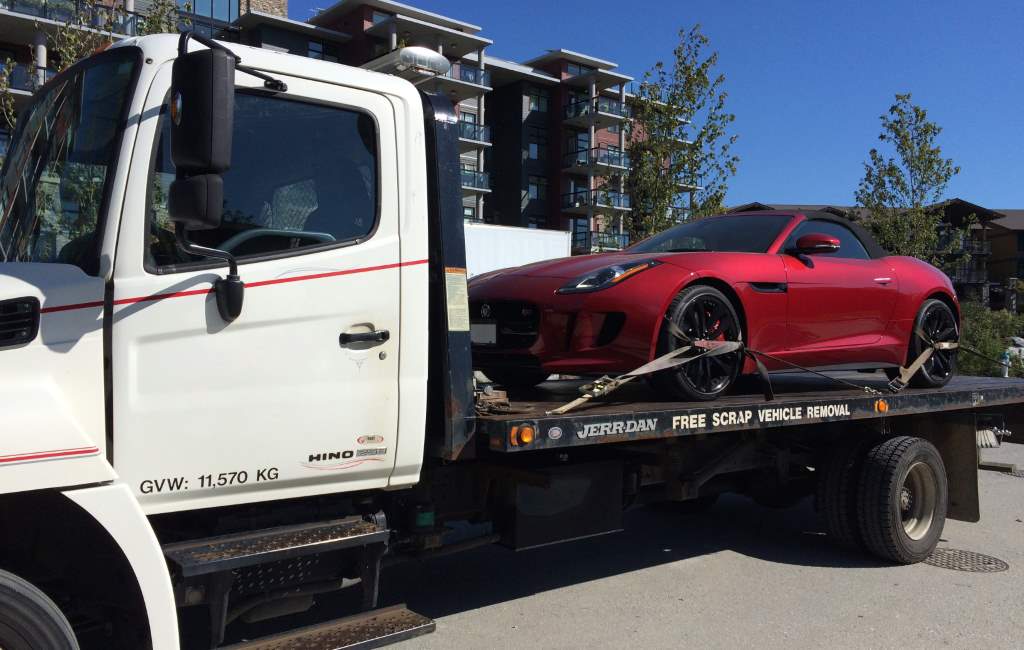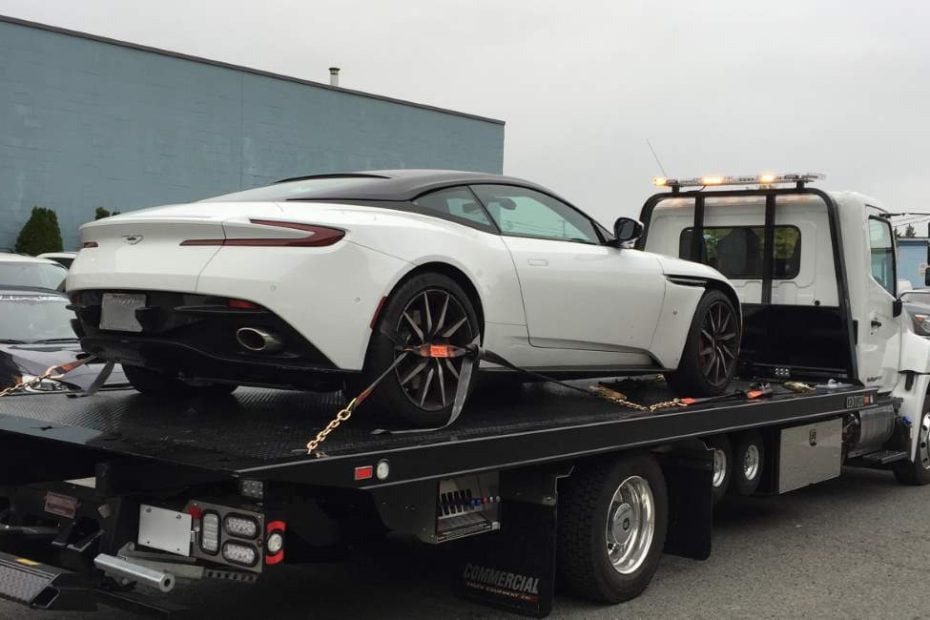Understanding towing safety is crucial for anyone who plans to tow a trailer or another vehicle. Towing can be a complex and potentially dangerous task if not done correctly. It is important to have a good understanding of the weight limits of your vehicle, choose the right towing equipment, inspect your vehicle before towing, properly secure your vehicle to the towing equipment, maintain a safe and consistent speed, avoid sudden stops and sharp turns, monitor your vehicle’s temperature and fluid levels, properly park and store your vehicle after towing, know when to seek professional towing services, and regularly maintain your vehicle to prevent towing damage. This article will provide an in-depth look at each of these topics to ensure that you have all the information you need to tow safely.
Key Takeaways
- Know the weight limits of your vehicle before towing to avoid damage and accidents.
- Choose the right towing equipment that matches your vehicle’s weight and towing capacity.
- Inspect your vehicle thoroughly before towing to ensure it is in good condition and safe to tow.
- Properly secure your vehicle to the towing equipment to prevent it from shifting or falling off.
- Maintain a safe and consistent speed while towing, and avoid sudden stops and sharp turns to prevent accidents.
Understanding the Weight Limits of Your Vehicle
Knowing the weight limits of your vehicle is essential for safe towing. Exceeding these limits can put excessive strain on your vehicle’s engine, transmission, brakes, and suspension, leading to potential mechanical failures and accidents. To determine your vehicle’s weight limits, you can refer to the owner’s manual or check the manufacturer’s website for specifications. The weight limits typically include the gross vehicle weight rating (GVWR), which is the maximum weight that your vehicle can safely carry including passengers, cargo, and tongue weight from a trailer hitch. It also includes the maximum towing capacity, which is the maximum weight that your vehicle can tow.
Choosing the Right Towing Equipment for Your Vehicle
Choosing the right towing equipment is crucial for safe and effective towing. There are several types of towing equipment available, including trailer hitches, tow bars, and fifth-wheel hitches. The type of equipment you choose will depend on the type of vehicle you have and what you plan to tow. When selecting a trailer hitch, make sure it is compatible with your vehicle’s weight limits and has a sufficient towing capacity. Consider factors such as the type of trailer you will be towing, the weight distribution, and the type of hitch receiver on your vehicle. It is also important to ensure that the towing equipment is properly installed and securely attached to your vehicle.
Inspecting Your Vehicle Before Towing
Before towing, it is essential to inspect your vehicle to ensure that it is in good working condition. This will help identify any potential issues that could cause problems while towing. Start by checking the tires for proper inflation and tread depth. Inspect the brakes to ensure they are functioning properly and have sufficient pad thickness. Check all fluid levels, including engine oil, coolant, transmission fluid, and brake fluid. Look for any leaks or signs of damage. Inspect the lights and electrical connections to ensure they are working correctly. Finally, check the suspension and steering components for any signs of wear or damage.
Properly Securing Your Vehicle to the Towing Equipment

Properly securing your vehicle to the towing equipment is crucial for safe towing. Start by ensuring that the trailer hitch or tow bar is securely attached to your vehicle. Use safety chains or cables to provide an additional level of security in case the hitch fails. Make sure the safety chains are crossed under the trailer tongue to prevent it from dropping onto the road if it becomes disconnected from the hitch. Attach the trailer’s electrical connector to your vehicle’s electrical system to ensure that all lights and signals are working properly. Finally, check that the trailer’s brakes, if equipped, are properly connected and functioning correctly.
Maintaining a Safe and Consistent Speed During Towing
Maintaining a safe and consistent speed while towing is essential for both your safety and the safety of other road users. Towing adds extra weight and changes the dynamics of your vehicle, making it more difficult to accelerate, decelerate, and maneuver. It is important to drive at a speed that allows you to maintain control of your vehicle and react to any unexpected situations. Avoid excessive speed, as it can increase the risk of accidents and make it more difficult to stop or maneuver safely. It is also important to maintain a consistent speed to minimize stress on your vehicle’s engine, transmission, and brakes.
Avoiding Sudden Stops and Sharp Turns While Towing
Sudden stops and sharp turns can be dangerous while towing, as they can cause the trailer to sway or jackknife, leading to loss of control. It is important to anticipate stops and turns well in advance and apply the brakes gradually and smoothly. Avoid slamming on the brakes, as this can cause the trailer to push your vehicle forward or skid. When making turns, take them slowly and smoothly, allowing for the extra length and weight of the trailer. Use your mirrors to monitor the trailer’s position and make any necessary adjustments.
Monitoring Your Vehicle’s Temperature and Fluid Levels During Towing
Monitoring your vehicle’s temperature and fluid levels is crucial while towing, as the added strain can cause increased heat and fluid consumption. Keep an eye on your vehicle’s temperature gauge and pull over immediately if it starts to overheat. This could indicate a problem with the cooling system or insufficient airflow to the radiator. Check all fluid levels regularly, including engine oil, coolant, transmission fluid, and brake fluid. Top up any fluids that are low and address any leaks or issues promptly.
Properly Parking and Storing Your Vehicle After Towing
Properly parking and storing your vehicle after towing is important for its safety and longevity. When parking, choose a level surface and engage the parking brake. If you are towing a trailer, make sure it is properly secured and chocked to prevent it from rolling. If you have a motorhome or RV, consider using leveling blocks to ensure that it is stable. When storing your vehicle, choose a clean, dry, and secure location. If possible, cover your vehicle to protect it from the elements. Disconnect the trailer or towing equipment and store it properly to prevent damage and ensure it is ready for future use.
Knowing When to Seek Professional Towing Services
There may be times when it is necessary to seek professional towing services. If you encounter a mechanical failure or accident while towing, it is important to prioritize your safety and the safety of others on the road. If you are unsure about how to safely handle a towing situation, it is best to contact a reputable towing company for assistance. When choosing a towing company, look for one that is licensed, insured, and has a good reputation. Consider factors such as response time, availability, and pricing. It is also a good idea to have the contact information for a reliable towing company saved in your phone or vehicle for emergencies.
What Precautions Can Vancouver Drivers Take to Prevent Damage to Their Vehicle During Towing?
When it comes to towing in Vancouver, safety tips for Vancouver drivers are crucial to prevent damage to their vehicle. Firstly, ensure that the towing equipment is in good condition. Secondly, drive cautiously and avoid sudden movements to prevent further damage. Lastly, always follow the recommended towing procedures.
Regularly Maintaining Your Vehicle to Prevent Towing Damage
Regular vehicle maintenance is essential for preventing towing damage and ensuring safe and reliable towing. Follow the manufacturer’s recommended maintenance schedule for your vehicle, including regular oil changes, filter replacements, and inspections. Pay attention to any warning signs or unusual noises that could indicate a problem with your vehicle’s engine, transmission, brakes, or suspension. Address any issues promptly to prevent further damage and ensure that your vehicle is in optimal condition for towing.
In conclusion, understanding towing safety is crucial for anyone who plans to tow a trailer or another vehicle. It is important to know the weight limits of your vehicle, choose the right towing equipment, inspect your vehicle before towing, properly secure your vehicle to the towing equipment, maintain a safe and consistent speed, avoid sudden stops and sharp turns, monitor your vehicle’s temperature and fluid levels, properly park and store your vehicle after towing, know when to seek professional towing services, and regularly maintain your vehicle to prevent towing damage. By following these guidelines, you can ensure safe and successful towing experiences. Always prioritize safety and take the necessary precautions to protect yourself, your vehicle, and others on the road.
If you’re interested in learning about some unique towing jobs you’ve probably never seen before, check out this fascinating article on City Tow Truck’s website. From towing massive industrial equipment to rescuing vehicles stuck in unusual places, this article showcases the diverse and challenging tasks that tow truck operators face. It’s a great read for anyone curious about the behind-the-scenes world of towing. Click here to explore these extraordinary towing jobs.
FAQs
What is towing?
Towing is the process of pulling or hauling a vehicle using another vehicle, such as a tow truck or another car.
What are the common causes of damage during towing?
Common causes of damage during towing include improper attachment of the towed vehicle, exceeding the weight limit of the tow vehicle, and sudden stops or turns.
How can I prevent damage to my vehicle during towing?
To prevent damage to your vehicle during towing, ensure that the towed vehicle is properly attached, use the appropriate tow vehicle for the weight of the towed vehicle, and drive carefully, avoiding sudden stops or turns.
What are the legal requirements for towing in Vancouver?
In Vancouver, towing regulations require that the towed vehicle must have functioning brakes, and the tow vehicle must have a tow bar or other approved towing device.
Can I tow my vehicle myself?
It is possible to tow your vehicle yourself, but it is recommended that you use a professional towing service to ensure that the towing is done safely and without damage to your vehicle.
What should I do if my vehicle is damaged during towing?
If your vehicle is damaged during towing, you should contact the towing company and your insurance company to report the damage and file a claim.
